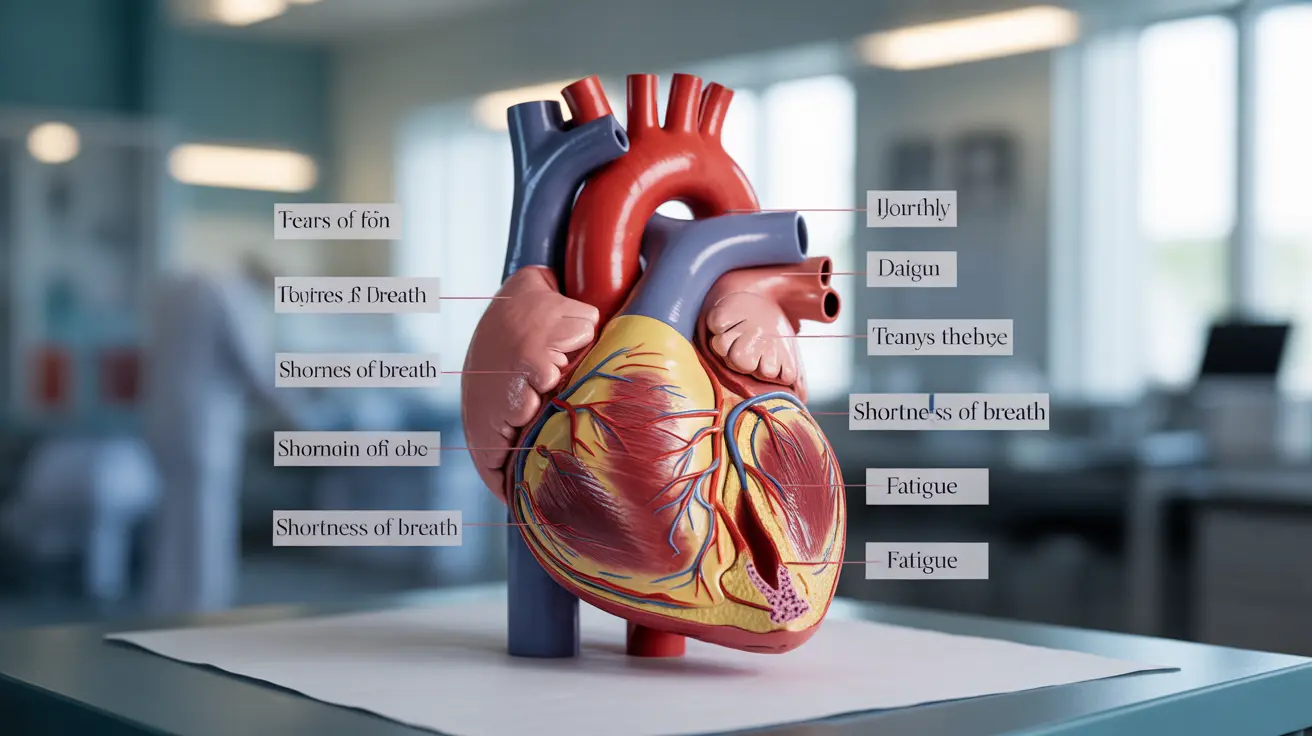End-stage congestive heart failure represents the most advanced phase of heart failure, where the heart's ability to pump blood becomes severely compromised. Understanding the timeline, symptoms, and care options during this critical period is essential for patients, families, and caregivers to make informed decisions and ensure the best possible quality of life.
This comprehensive guide explores what to expect during the final stage of congestive heart failure, including typical duration, warning signs, treatment approaches, and support strategies for both patients and caregivers.
Timeline of End-Stage Heart Failure
The final stage of congestive heart failure typically varies significantly among individuals, lasting anywhere from several months to several years. The progression depends on various factors, including overall health, adherence to treatment plans, and response to medications.
While it's challenging to predict exact timelines, patients generally experience periods of stability interrupted by episodes of symptom exacerbation, known as acute decompensation.
Recognizing End-Stage Symptoms
Several key indicators suggest that heart failure has progressed to its final stage:
- Severe shortness of breath, even at rest
- Persistent coughing or wheezing
- Extreme fatigue and weakness
- Significant swelling in legs, ankles, and feet
- Rapid or irregular heartbeat
- Difficulty concentrating or confusion
- Loss of appetite and nausea
Treatment Approaches and Management
Managing end-stage heart failure focuses on improving quality of life and controlling symptoms through various interventions:
Medical Management
- Advanced heart failure medications
- Careful fluid management
- Regular monitoring of vital signs
- Oxygen therapy when needed
Surgical Options
In some cases, advanced surgical interventions might be considered:
- Left ventricular assist devices (LVADs)
- Heart transplantation (for eligible candidates)
- Specialized cardiac procedures
The Role of Hospice Care
Hospice care becomes an important consideration when traditional treatments no longer effectively manage symptoms. This specialized care focuses on comfort and quality of life, providing:
- Expert symptom management
- Emotional and spiritual support
- Family counseling and resources
- 24/7 access to healthcare professionals
Support for Caregivers
Caregivers play a crucial role in supporting patients with end-stage heart failure. Key responsibilities include:
- Medication management and monitoring
- Recognizing and reporting new symptoms
- Providing emotional support
- Coordinating medical appointments
- Ensuring comfort and safety at home
Frequently Asked Questions
How long does the final stage of congestive heart failure typically last?
The duration varies significantly, ranging from several months to years, depending on individual factors such as overall health, treatment response, and lifestyle choices.
What symptoms indicate that congestive heart failure has reached the end stage?
End-stage symptoms include severe shortness of breath even at rest, extreme fatigue, persistent swelling, frequent hospitalizations, and difficulty performing basic daily activities.
What treatment options are available to manage symptoms in end-stage congestive heart failure?
Treatment options include advanced medications, careful fluid management, oxygen therapy, and in some cases, mechanical support devices or heart transplantation. Palliative care focuses on symptom management and quality of life.
When should hospice care be considered for someone with end-stage congestive heart failure?
Hospice care should be considered when conventional treatments become less effective, symptoms significantly impact quality of life, or when frequent hospitalizations occur despite optimal medical therapy.
What can caregivers do to support someone in the final stage of congestive heart failure?
Caregivers can provide medication management, monitor symptoms, coordinate medical care, ensure comfort, and offer emotional support while also seeking resources for their own support needs.
Remember, while end-stage heart failure presents significant challenges, proper medical care and support can help maintain quality of life and comfort for patients during this difficult time.




